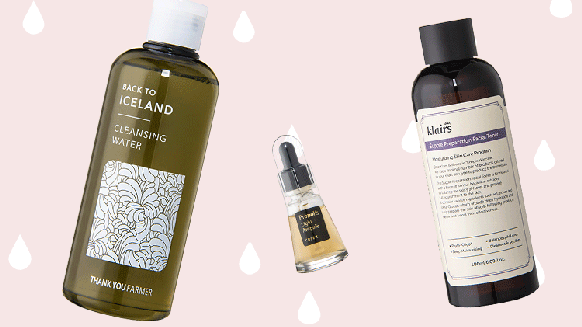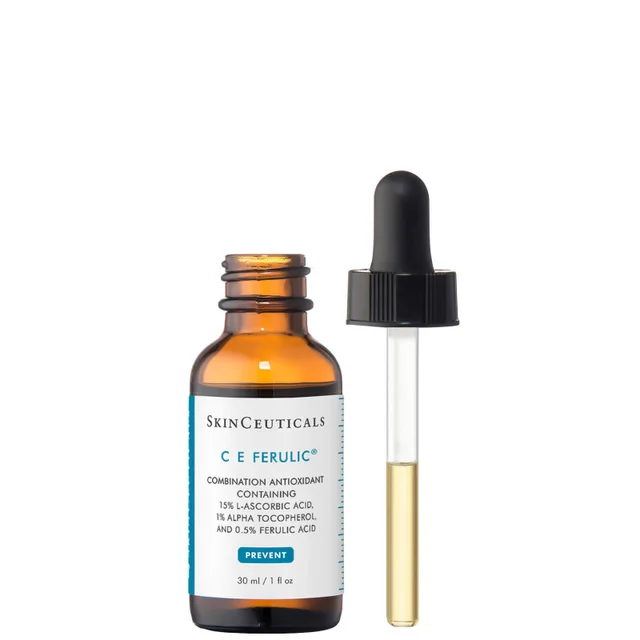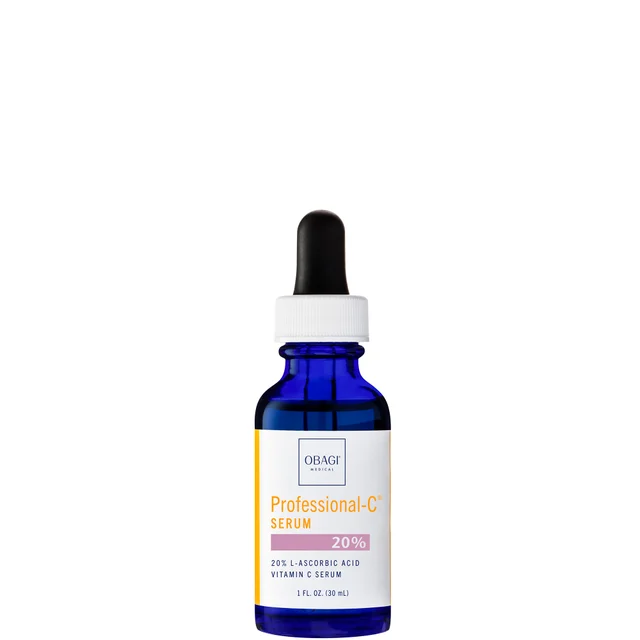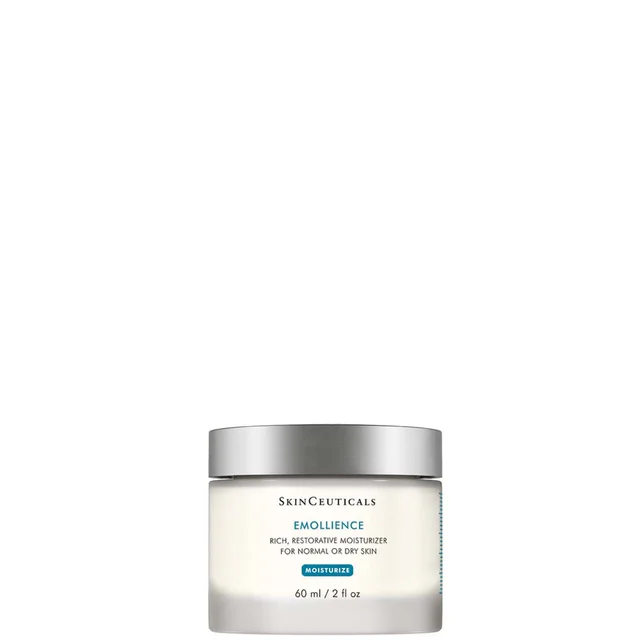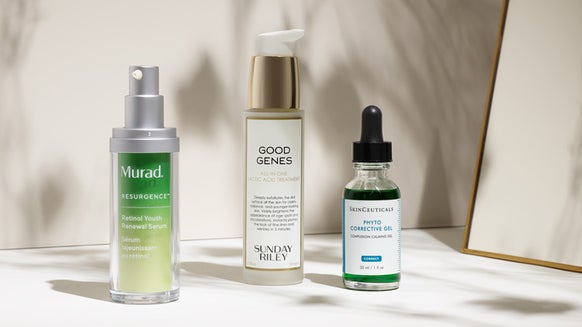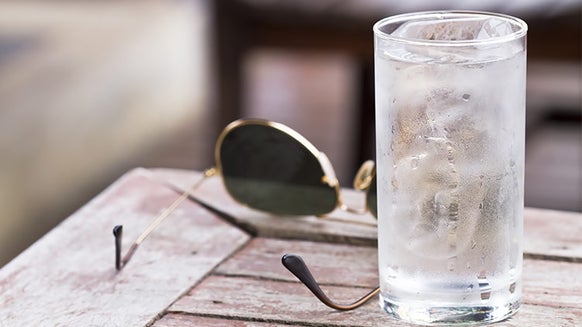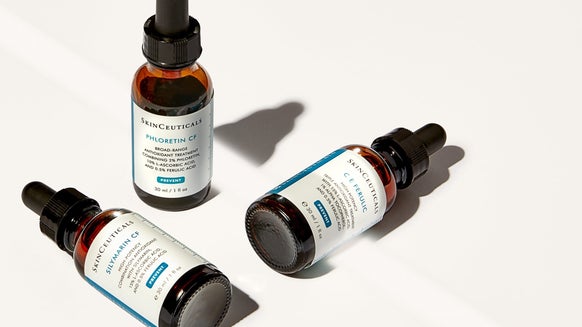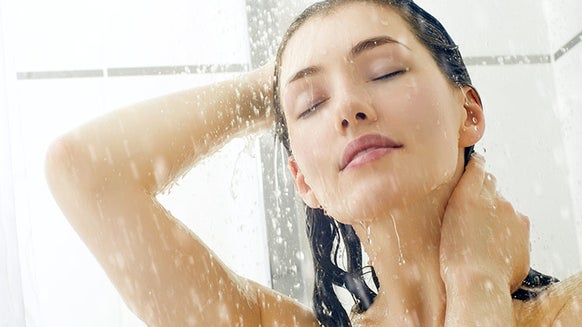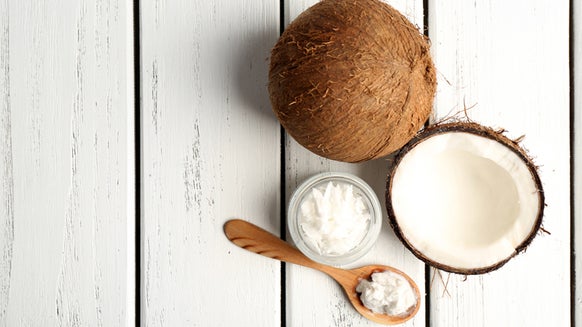Anti-Aging Serums, Creams and Retinol Treatments: What’s the Difference?
If you’ve ever found yourself browsing the virtual shelves of your favorite beauty website, then you know it can be confusing to navigate your way through the myriad anti-aging products—creams, serums, retinol formulas and more—to find the right match for what your skin needs. Instead of opening another tab to continue your search, consider this your guide to all things anti-aging. No more guess work---just results!
What Is a Serum Used for?
Face serums are considered one of the most effective anti-aging products due to the concentration of their active ingredients. Sometimes referred to as a "booster," serums target a specific skin concern. Dermatologist Dr. Janet Prystowsky explains, "The concentrations in serums are meant to penetrate the skin faster and easier than creams because they’re not diluted with moisturizer." As an example, serums with ingredients like vitamin C work to remove a layer of your skin, unveiling a smoother, more youthful appearance after just a few weeks' use. “Using a brightening serum as a spot treatment for brown spots may work better than using a brightening moisturizer on your whole face,” she adds.
How to use: Dermatologist Dr. Tsippora Shainhouse, M.D., FAAD says that a serum should always come before anything else in your skin care routine. Once you apply this, it’s essential to allow it to completely seep into your pores before adding anything else on top. Dr. Prystowsky notes that after this step, apply a moisturizer to lock in the active ingredients found in the serum.
When to start using: Though it's best to chat with your own dermatologist who knows your skin best, dermatologist and director of cosmetic and clinical research at Mount Sinai Hospital Joshua Zeichner, M.D. explains that cell turnover begins to slow down and your antioxidant defenses decrease when you hit your 30s. During this time, you should opt for a serum that has vitamin C and vitamin E, on a daily basis. “They are like fire extinguishers and put out inflammation caused by UV-induced free radicals,” he says.
What Are Anti-Aging Creams?
"Cream" is a catch-all term for all sorts of products---from your typical moisturizer to day and night creams. Most of these more lotion-like varieties offer a mix of hydration, nutrients and sun protection. As Dr. Prystowsky explains, “Anti-aging creams are moisturizers with key ingredients that smooth fine lines and wrinkles. Some anti-aging creams are meant to brighten skin as well.” Unlike a serum that could potentially dry out or over-exfoliate your skin, depending on the ingredients, a cream is more gentle and can be applied both morning and night.
Another quality of creams that’s beneficial for your skin regardless of age is the SPF protection that’s often included as part of the formula. More than any other anti-aging tactic you try, keeping your pores shielded from sunshine is more impactful in the long run.
How to use: Be mindful of finding an anti-aging cream or moisturizer that is compatible with your skin type. You should double-check that you’re not adding extra oil if you’re acne prone. Also, avoid products that include a drying agent if you already struggle with dehydrated skin. Speak with your dermatologist if you have trouble finding the right variety.
When to start using: Now! As Dr. Shainhouse says, moisturizer with sunscreen should be part of your regimen, no matter how old you are. The earlier you start, the better your results will be.
What Are Eye Creams?
Though the level of pigmentation will vary depending on your ethnicity and genetics, the skin around our eyes is among the first to show signs of aging. This is the reason most dermatologists recommend using a specialized cream for your eyes.
“The skin surrounding the eye area of your face is a little thinner and more delicate than the rest of the face,” Dr. Prystowsky notes. But as far as the formulas in an anti-aging cream and an under-eye cream? She explains that the biggest difference isn’t really in the ingredients, but in the concentration. Because you need some more TLC under your eyelashes, you’ll see a higher quantity of active ingredients in under-eye creams. Dr. Zeichner adds that most under-eye creams will be void of fragrances too, which can cause some discomfort in this sensitive area.
How to use: After applying your anti-aging serum, let the first layer dry. Then, add a pea-sized amount, about the size of your pinky-finger tip directly below your eye. Be careful not to get this in your eye, but massage gently and inwardly, so you don’t pull against the skin.
When to use: Though there’s not a bad time to start giving some love to your eyes, Dr. Shainhouse says that when you hit your 30s, this is a good time to start investigating which eye cream is best for you.
What Are Retinoid Products?
You’ve probably heard the term "retinoid" thrown around, but you might not know what this word actually means. By definition, a retinoid is a group of compounds derived or chemically related to vitamin A, which benefits the skin in a lot of ways, Dr. Zeichner notes. You'll see this ingredient in your products' labels as retinol, retinal or retinoic acid, all of which are designed to neutralize free radicals and exfoliate the first layer of your skin, fading fine lines, wrinkles, acne marks and other blemishes.
How to use: Because this product can cause your skin to dry out and sometimes turn red, it’s best to talk to your dermatologist before starting a retinoid regimen, Dr. Zeichner explains. You can usually pair your retinoid product with a moisturizer, but you’ll want to make sure they're compatible, too. For a more detailed instruction, here's a video on how to apply retinol.
When to use: “In your 40s, previous sun exposure leads to collagen damage, which weakens the skin’s foundation. Make sure that you are using a topical retinoid in the evening to help stimulate collagen, strengthen the skin and minimize the appearance of fine lines and wrinkles,” Dr. Zeichner says.

From the latest hair and makeup trends to the best solutions for your skin issues, we've got all your beauty concerns covered!
Related Posts

4 Dermatologist-Approved Ingredients You Need in Your Skin Care Routine
